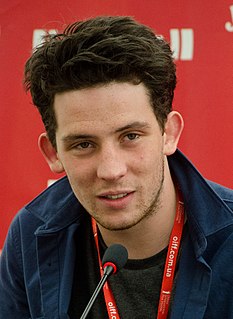A Quote by David Crystal
Of all the mediums that influence language, I think film is the one that has the most effect. Not so much from the point of view of pronunciation and grammar. I don't think we pick up very many sounds and grammatical instructions from the films we see - but the catchphrases.
Related Quotes
The experimental film scene was very much misogynistic as well. I don't know if you have read what little attention was given to the films of Joyce Wieland, who was the wife of Michael Snow. Michael was the "genius" and she was not. If you look at the films they're wonderful, but very different. Michael was very proud of the films too, so it was not coming from him. It was coming from the general environment. I think both Chantal Akerman and I shared that. We wanted to find a language, which was the language of women.
I really love any and all manifestations of art, really respect any kind of artistic impulse, whether it's paintings and sculptures or really good filmmaking or music. I really see the relationships between these different mediums as very fluid. I think you see that nowadays, in this postmodern context, there's much more use of different mediums in contemporary art. For me, if you're a creative person, you can choose to make a painting, you can choose to make a film.
Let me just acknowlege that the function of grammar is to make language as efficent and clear and transparent as possible. But if we’re all constantly correcting each other’s grammar and being really snotty about it, then people stop talking because they start to be petrified that they’re going to make some sort of terrible grammatical error and that’s precisely the opposite of what grammar is supposed to do, which is to facilitate clear communication.
I don't think all films should necessarily look like they do on digital video. I think it cheats the audience, at some point. If you try to make an epic and you shoot it digitally, that doesn't make much sense. I think there's a certain kind of film that could be a "digital film." But it shouldn't be interchangeable with other films. It should be something more than just a capture medium. It should be a different form altogether, something new.
Personally I think that grammar is a way to attain Beauty. When you speak, or read, or write, you can tell if you've spoken or read or written a fine sentence. You can recognise a well-tuned phrase or an elegant style. But when you are applying the rules of grammar skilfully, you ascend to another level of the beauty of language. When you use grammar you peel back the layers, to see how it is all put together, to see it quite naked, in a way.




































